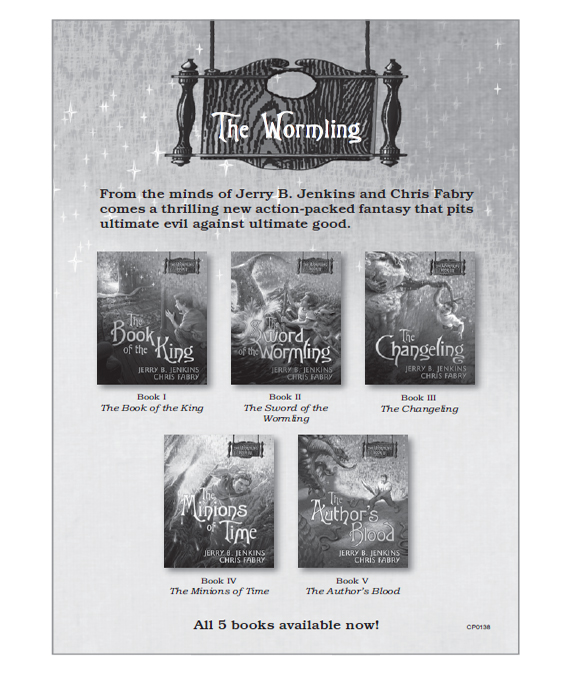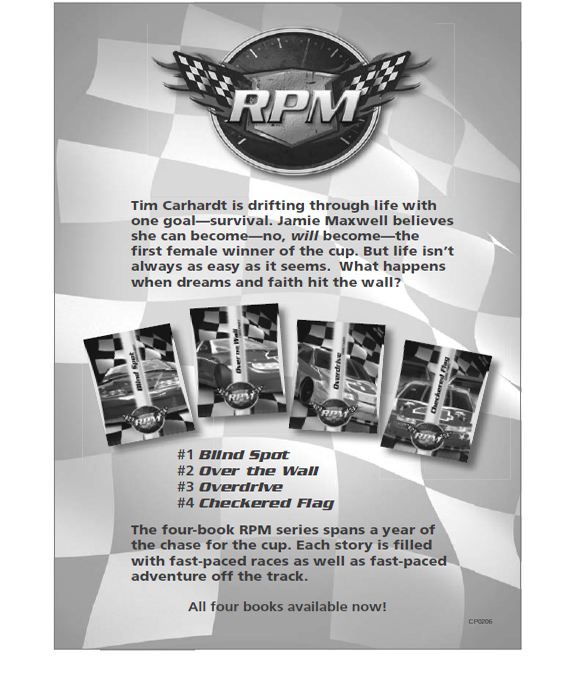Final Battle (24 page)
Authors: Sigmund Brouwer

Later, when the celebration at the dome quieted down, Ashley rolled me in my wheelchair to one of the garden spots. I'd asked her to take me there because of what I'd planned.
She stood beside my wheelchair, half covered with the shadows from the trees.
I rolled my wheelchair forward slightly to where I had hidden my comp-board, with its built-in DVD-gigarom player, beneath a bench.
I clicked a button. A quiet voice began to sing softly, with guitar as a background.
“What's this?” Ashley asked.
“An old ballad from Earth,” I said. “About kids with hopes and dreams.”
“I like it.”
“Me too.”
Then I stood up calmly ⦠and walked toward Ashley.
“Tyce! You can ⦠you can ⦔ She wasn't able to finish as she began to cry with happiness for me.
“Yes, I can walk,” I said.
I extended a hand. There had been something I'd been dreaming of doing for years. And I had practiced it over the last three months too. For hours with the song playing softly in my room.
“And there's something else I can do too.” I smiled.
With a puzzled look on her face, Ashley took my hand.
“Care to dance?” I asked.
And so we did, with her tears falling freely on my shoulders.
You've probably noticed that the question of God's existence comes up in Robot Wars.
It's no accident, of course. I think this is one of the most important questions that we need to decide for ourselves. If God created the universe and there is more to life than what we can see, hear, taste, smell, or touch, that means we have to think of our own lives as more than just the time we spend on Earth.
On the other hand, if this universe was not created and God does not exist, then that might really change how you view your existence and how you live.
Sometimes science is presented in such a way that it suggests there is no God. To make any decision, it helps to know as much about the situation as possible. As you decide for yourself, I'd like to show in the Robot Wars series that many, many peopleâincluding famous scientistsâdon't see science this way.
As you might guess, I've spent a lot of time wondering about science and God, and I've spent a lot of time reading about what scientists have learned and concluded. Because of this, I wrote a nonfiction book called
Who Made The Moon?
and you can find information about it at
www.whomadethemoon.com
. If you ever read it, you'll see why science does not need to keep anyone away from God.
With that in mind, I've added a little bit more to this bookâa couple of essays about the science in journals one and two of Robot Wars, based on what you can find in
Who Made The Moon?
Sigmund Brouwer
www.whomadethemoon.com
IS DNA JUST ABOUT FINGERPRINTS?
Q: Is DNA just about fingerprints?
A: Your body comes with a complete set of instructions. This “master blueprint,” called a
genome
, is what told your mother's body to make you into a human being instead of a frog or a dog or a cat. It's what makes you
you
, instead of your brother or sister. And you're still carrying that genome even as you grow up. It will never change.
A genome consists of
DNA
(you can think of DNA as the “building blocks of life”) and associated protein molecules contained in something called
chromosomes.
The nucleus of each human cell contains two sets of chromosomes. One's from your dad. The other is from your mom.
The way it all works together is pretty complicated but also very cool. And scientists are still trying to figure out how our bodies work. That's why the United States started the Human Genome Project in 1990âto figure out how to identify people's genes and map DNA. Currently it's being used to test babies for any genetic problems before they're born and to screen newborn babies. Mapping someone's DNA can even tell if someone is high-risk to develop cancer or confirm the diagnosis of a genetic disease. It can tell you how long you'll probably live. And it can even ID a criminal!
All of these are very good things, but there's also the risk of taking them too far. In Tyce's world of 2040, the Terratakers are arguing that everyone should be automatically tested, without having a say in it. And that means the DNA test results will have to be stored somewhere. That also means that those test results can fall into the wrong people's handsâ people like Dr. Jordan, Luke Daab, and other Terratakers who want to identify skills, like those of the robot kids, that they can abuse.
It also means that suddenly those with “perfect” genes will become the highly prized people. Those with “imperfect” DNAâwho have genetic defects or even those who aren't as “smart” as othersâcan become less important to the world. They can be considered “not fully human”âlike the vice governor who seemed to imply that Tyce isn't as good as other humans because he's in a wheelchair. And that kind of thinking can lead to some scary things down the road. Like what happened to the Jews in concentration camps in the days of World War II and Hitler. They were considered a “nonhuman” race just because they were Jews.
So although these leaps ahead in science, like the Human Genome Project, can be good and can identify what's “unique” about you through your individual human genome, they can't and don't tell you what God does. He's the one who has made you with your particular, individual genes. That means in his eyes you're perfectâjust as you are. No matter if your nose or teeth are crooked, you can't throw a baseball, or you can't run as fast as your sister. It also means that he has something special in mind for your life.
Just look at Tyce. Even though he's in a wheelchair, he was able to save the lives of millions of people at the Los Angeles nuclear plant. And because of his special skills, he figured out a unique way to rescue the robot kids near the Moon.
It all comes down to this. Your DNA and chromosomesâ what makes your physical bodyâaren't what's most important. Instead, what makes you really human is that you've been created by God, implanted with a soul, and that only you, as a human, can have a relationship with God.
Your DNA isn't just about your fingerprints or your skills. It's actually God's fingerprint on you.
WHAT'S THE MATTER WITH MATTER?
Q: What's the matter with matter?
A: When matter and antimatter touch,
bam!
They explode, destroying each other. You see, matter is made up of what's called
quarks
; antimatter is made of
antiquarks
. Although quarks and antiquarks are identical to each other in most aspects, their touching and the subsequent explosion results in a burst of energy.
Physicists tell us that in the first moments of creation, the energy levels were so high that immediately upon self-destruction, new quarks and antiquarks were formed. But as the universe began to cool, there was no way for new quarks and antiquarks to replace the destroyed ones.
Basically all this technical stuff means that according to the laws of physics, nothing in this universe should exist. And that means no Moon, no sun, no Mars, no Earth. And certainly no you.
Instead, for reasons physicists can't figure out, for every 10 billion antiquarks, the beginning universe created 10 billion and one quarks. And that one extra quark per every 10 billion antiquarks led to an infinite amount of matter that became the planets, stars, and galaxies of the universe.
Q: How is it that so much matter managed to survive? Why is there some matter rather than no matter?
A: Science cannot give us that answer. In fact, the chances that matter could survive are, according to a bigwig Oxford mathematician, Roger Penrose, less than one in 10123. That's a 10 followed by 123 zeros, which means the chances are not likely at all!
Yet somehow, against those kinds of odds, the universe grew in a way to make life possible on Earth. To make
your
life possible.
No matter what, many scientists argue that this shows us that the creation of the universe was not a random event. Our bodies are composed of the dust of the stars. The carbon and hydrogen and oxygen and trace elements are arranged in such a way that we can breathe, that our eyes can interpret light waves, and that our brains can generate thoughts and give instructions to our bodies (much as Tyce's brain waves tell the robot how to move in this story).
When you think about this, it's not so startling to think that the world was not only created, but it continues to spin and move at the direction of an invisible Creator. A Creator who exists beyond what we can see and sometimes sense physically. A Creator who sustains us through daily miracles. Like the fact that the sunlight is not too strong and not too weak. It comes from a star the perfect distance away from Earth in order to allow plants to grow in the dirt that was once stardust. Not only do our bodies depend on these plants, we find nutrition in the protein of animals that eat these plants.
The life cycle of all matter on this planet exists because of things like thisâsunlight, water, and dirtâall possible because of the creation events set in motion by God at the beginning of time. It's that simple. And also that wonderful.
So in the end, science can't totally answer the question of “what's the matter with matter?”
But God can. And everything you learn about science will only strengthen the ability of your brain to accept his existence. Even when things seem impossible (like the reaction of matter and antimatter), God will always find a way.
Sigmund Brouwer, his wife, recording artist Cindy Morgan, and their daughters split living between Red Deer, Alberta, Canada, and Nashville, Tennessee. He has written several series of juvenile fiction and eight novels. Sigmund loves sports and plays golf and hockey. He also enjoys visiting schools to talk about books. He welcomes visitors to his Web site at
www.coolreading.com
.


